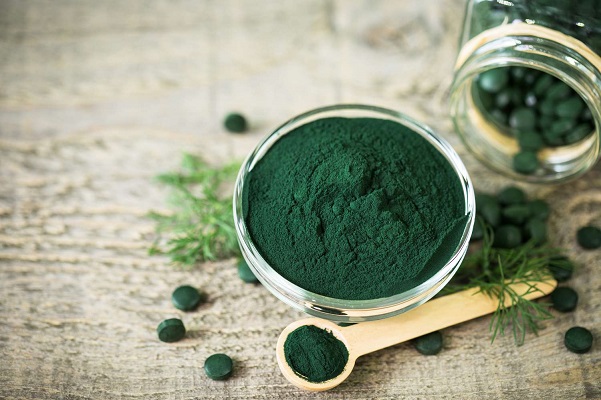On This Page
Overview
Papaya is a world superfood. It is a fruit of all seasons that provides the body with all essential nutrients. High on vitamin A, eating papaya regularly helps in treating vision-related problems. The extract of this pulpy fruit is also the main ingredient in a wide range of skin and hair care products. The whopping amounts of essential vitamins A, C, and antioxidants lycopene present in papaya make your skin look radiant, toned, and youthful. Just like its numerous names, papaya also has a vast nutritional value. The benefits of eating papaya add to their popularity. Papayas are now easily available at almost all times of the year for us to gorge on.
Synonyms of Papaya
- Paka Pepe
- Papaya
- Papita
- Pharangi
- Omakai
- Popai
- Carica papaya
Nutritional Facts of Papaya
Nutritional value per 100 g
| Energy: | 43 kcal |
| Carbohydrates: | 10.82 g |
| Sugars: | 7.82 g |
| Dietary fiber: | 1.7 g |
| Fat: | 0.26 g |
| Protein: | 0.47 g |
Phytochemical Constituents of Papaya
- Alkaloids
- Glycosides
- Tannins
- Saponins
- Flavonoids
Therapeutic Uses of Papaya – ITP
- Treats Skin Diseases
For centuries, papaya has been used as a natural cure to treat burns, scars, and skin conditions. Exfoliating dead skin cells and reducing skin pollutants are two benefits of the papain enzyme. To treat skin conditions such as eczema and psoriasis, as well as to stop itching and lessen redness, apply mashed papaya pulp directly to the affected skin region.
- Papaya Helps Ease Digestion
Papaya assists you by assisting your liver in breaking down fast food and saturated fats, maintaining the health of your body. Papaya contains fiber and a digestive enzyme called papain that helps your body break down meals thus helping ease digestion.
- Treatment For Ringworm
Papaya milk’s carotene content can aid in the treatment of ringworm infection. The anti-inflammatory qualities of papaya milk help to reduce the irritation and redness brought on by the virus.
- Prevents Irritable Bowel Syndrome (IBS)
Papayas have a 12 percent fiber content, 60 percent of which is soluble. This soluble fiber can aid in reducing IBS symptoms.
Additionally, papayas contain a variety of proteolytic (protein-digesting) enzymes that promote regular bowel motions.
- Treats Gout
Uric acid builds up in the blood, which leads to gout. The extra acid crystallizes, causing inflammation, redness, and joint pain.
Papaya may help in gout treatment and symptom relief. An enzyme called papain, which is present in papaya, has anti-inflammatory properties of its own.
Home Remedies Papaya
- Cures Vitiligo
Vitiligo, a disorder where white spots develop on the skin, affects roughly 1.5% of the world’s population. One of the best natural treatments for treating vitiligo is papayas.
Ripe papaya paste can help the skin regain its normal color by increasing melanin production when applied to the affected area.
Papaya juice can also help the internal healing of vitiligo.
- Heals Wounds
Crushed papaya seeds can aid in the quicker healing of wounds.
Papaya seeds exhibit strong antibacterial properties that aid in eradicating the bacteria in the wound and speed up recovery.
- Treats Melasma
Papaya’s exfoliating qualities make it a useful treatment for melasma. Apply papaya, whether ripe or unripe, on pigmented skin to make it supple and silky and to give it an even skin tone.
- Helps Treat Eczema
To treat skin imperfections, the papaya enzyme papain exfoliates dead skin cells. Raw papaya can aid in preventing irritation and redness when crushed and applied immediately to the afflicted area. You can also drink a glass of papaya milk every day to help with the treatment of skin conditions including psoriasis and eczema.
- Reduce Inflammation In The Lungs
Smokers’ lungs can get inflamed, whether they smoke actively or passively. Vitamin A, which is present in papayas, can help to prevent and lessen this inflammation, but smokers should get assistance to stop it.
If you cough frequently, sip a glass of papaya juice.
- Papaya Leaf Extract For Enhancing Platelet Count
Dengue fever should never be disregarded because it lowers platelet counts. A substantial decrease in platelet count has the potential to be deadly in some circumstances. It may result in ITP. A blood condition called idiopathic thrombocytopenic purpura is characterized by an unusual decline in the quantity of platelets in the blood. Blood cells called platelets aid in the cessation of bleeding. Easy bruising, bleeding gums, and internal bleeding can all be caused by a reduction in platelets.
The only alternative treatment to appropriate medication that is recommended by both allopathic and complementary medicine practitioners is papaya leaf extract. According to studies, in addition to lowering the fever, a little glass of papaya juice twice daily can considerably increase platelet levels.

Have A Health Issue?
Consult Online
- Dr. Sahil Gupta (B.A.M.S., M.H.A.)
Ayurvedic Allergy Specialist
CEO & Founder of IAFA®
Ayurvedic Aspects of Papaya
The Ayurvedic term for papaya is “Erandakarkati,” and it is a low-calorie, luscious fruit that is high in vitamins C and A. The fruit and other plant parts, like the seeds, are edible and are known to have therapeutic benefits.
Papaya’s antioxidant properties make them good for the skin. Antioxidants like vitamin C help boost immunity and fend against numerous diseases by reducing inflammation. Papaya pulp can be used as a face mask to help get rid of wrinkles, acne, and other skin imperfections.
According to Ayurveda, papaya leaf juice can boost platelet count and slow the spread of the dengue virus. Due to its laxative properties, papaya consumption daily aids in digestion and relieves constipation.
Daily Dose: Three thin slices of papaya, roughly a bowlful, can be consumed daily.
Side Effects of Papaya
- May Cause Respiratory Allergies
The enzyme found in papayas, papain, is a potent allergy. Therefore, excessive papaya eating may result in several respiratory conditions, including breathing difficulties, wheezing, persistent nasal congestion, tightness in the chest, and asthma.
- May Upset The Stomach
If you consume too much papaya, your digestive system may become disturbed. In turn, this will result in an unsettled stomach marked by stomach irritability. The digestive tract may become upset due to papaya’s high fiber content. The fruit’s latex may be to blame.
- Risky during Pregnancy
Papaya consumption during pregnancy is not advised at all. Papaya increases blood flow in the body and avoids blood clots. Eating papaya when pregnant is dangerous since it increases the risk of miscarriage. Pregnant women should avoid papaya as much as possible.
- Thyroid
Papaya should not be consumed if you have thyroid disease. In this situation, papaya consumption may exacerbate the thyroid condition.
- Latex Allergy
You should not eat papaya if you have a papain or latex allergy.
Conclusion
Papayas include a variety of enzymes and antioxidants that benefit the body in numerous ways. Regular papaya consumption can be beneficial. Skin begins to appear younger as a result, and the digestive system significantly improves.
Papayas are, in a nutshell, good for the entire body. So, for a better and healthier you, include a bowl of papayas in your regular diet. But consume it in moderation to be free from its side effects. Excess consumption of papaya can lead to latex allergy or any other side effects if you face these allergies you must consult Dr. Gupta at IAFA®. He cures these issues with ayurvedic approach and herbs.
References
- https://en.wikipedia.org/wiki/Papaya#:~:text=Raw%20papaya%20pulp%20contains%2088,of%20nutrients%20(see%20table).
- https://www.ncbi.nlm.nih.gov/pmc/articles/PMC7704890/#:~:text=Carica%20papaya%20leaf%20contains%20active,responsible%20for%20its%20medicinal%20activity.










